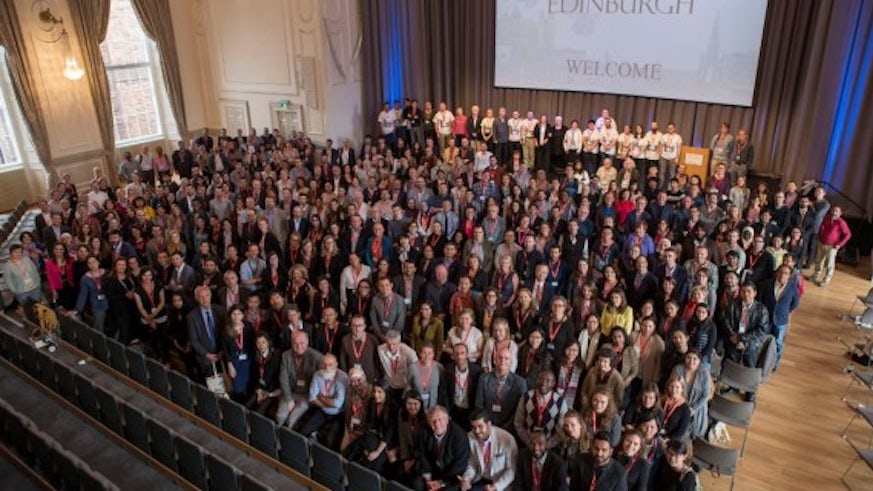School well-represented at sustainable architecture conference
6 Gorffennaf 2017

Research by over 25 staff and PhD students from the Welsh School of Architecture was presented at the Passive Low Energy Architecture (PLEA) network’s 2017 conference, which took place in Edinburgh from 3rd-5th July.
PLEA has a membership of thousands of professionals, academics, students and industry members from over 40 countries and has led a worldwide discourse on sustainable architecture and urban design through its conferences since 1982.
The theme of the conference was “Design to Thrive”, which was attended by over 500 delegates from academic, government and industry. For detailed conference proceedings, please visit the PLEA 2017 conference website.
The broad range of topics covered by WSA staff and PhD students included:
Science and technology
Skycourt as a ventilated buffer zone in office buildings: assessing energy performance and thermal comfort – Saba Alnusairat, Phil Jones and Shan Shan Hou
A parametric sensitivity analysis of the impact of built environment geometrical variables on building energy consumption – Anas M.Hosney Lila and Simon Lannon
Vertical Farms: Historic Development, Current State and Future Directions – Diana Waldron
People and community
Empowering local people through the planning process: The emerging practice of ‘Place Planning’ and its contribution to community well-being in Wales – Matthew Jones, Amanda Spence
Comfort as a strategic design ingredient to support pro-environmental behaviour in sustainable student accommodations – Adrienn Rokosni and Wouter Poortinga
Connecting householders with their homes using low-cost technological interventions – Gloria Vargas, Christopher Tweed and Gabriela Zapata-Lancaster
Users in context: actions and practices in low energy buildings – Gabriela Zapata-Lancaster and Chris Tweed
Design and practice
An additive approach to the building envelope using Welsh-grown timber – Steven Coombs, Prof Wayne Forster
MORE VERSUS BETTER: exploring the tension between quality and quantity in housing, and the opportunities offered by alternative approaches – Ed Green
Energy Performance Plan Analysis in a New Ecological City – Wenjing He, Philip Jones Xiaojun Li and Shanshan Hou
Domestic thermal insulation in Wales, UK: future demand scenarios, embodied impact and regional capacity to match demand – Fabrizio Varriale and Jo Patterson
A novel approach to predict real-time urban heat island effect and indoor overheating – Hu Du, Phillip Jones and Chao Long
Improving the Energy Performance of Historic Timber-Framed Buildings in the UK – Christopher J. Whitman, Oriel Prizeman, Julie Gwilliam and Pete Walker
Education and training
Bridging the gap: A framework for a robust sustainable design process – Sarah O’Dwyer